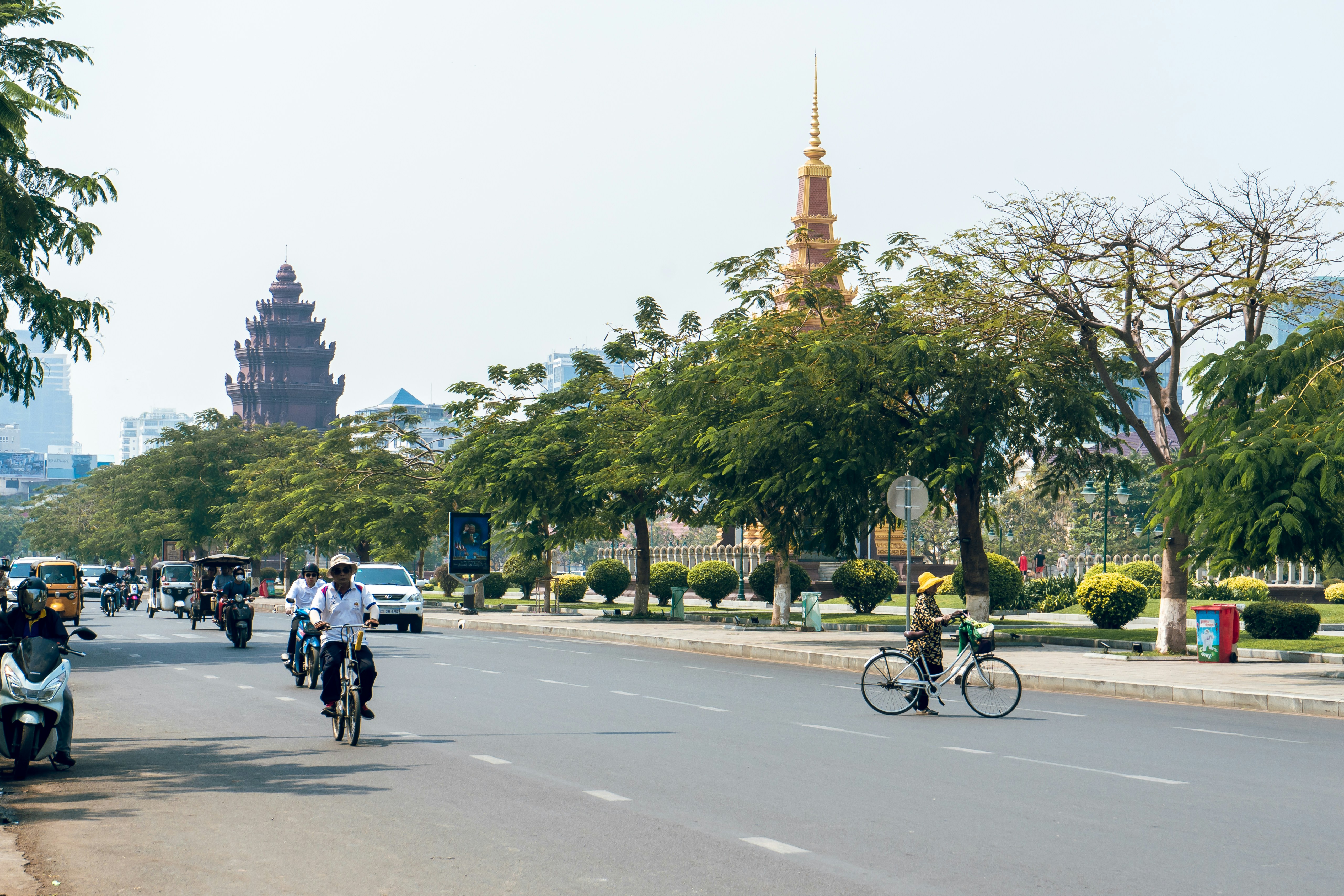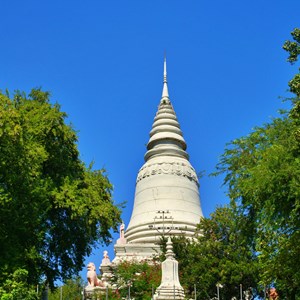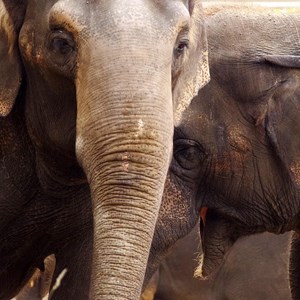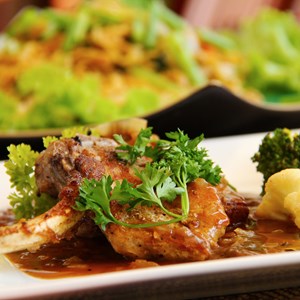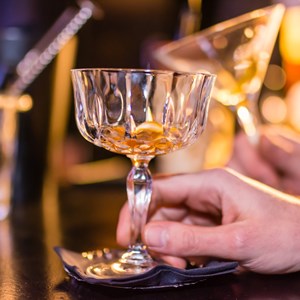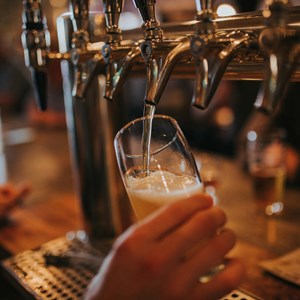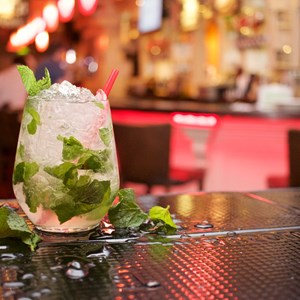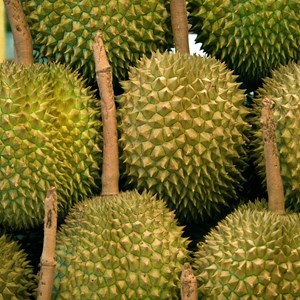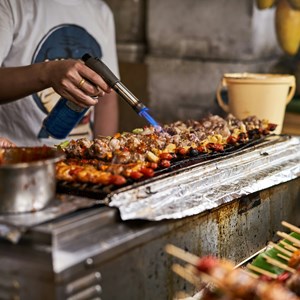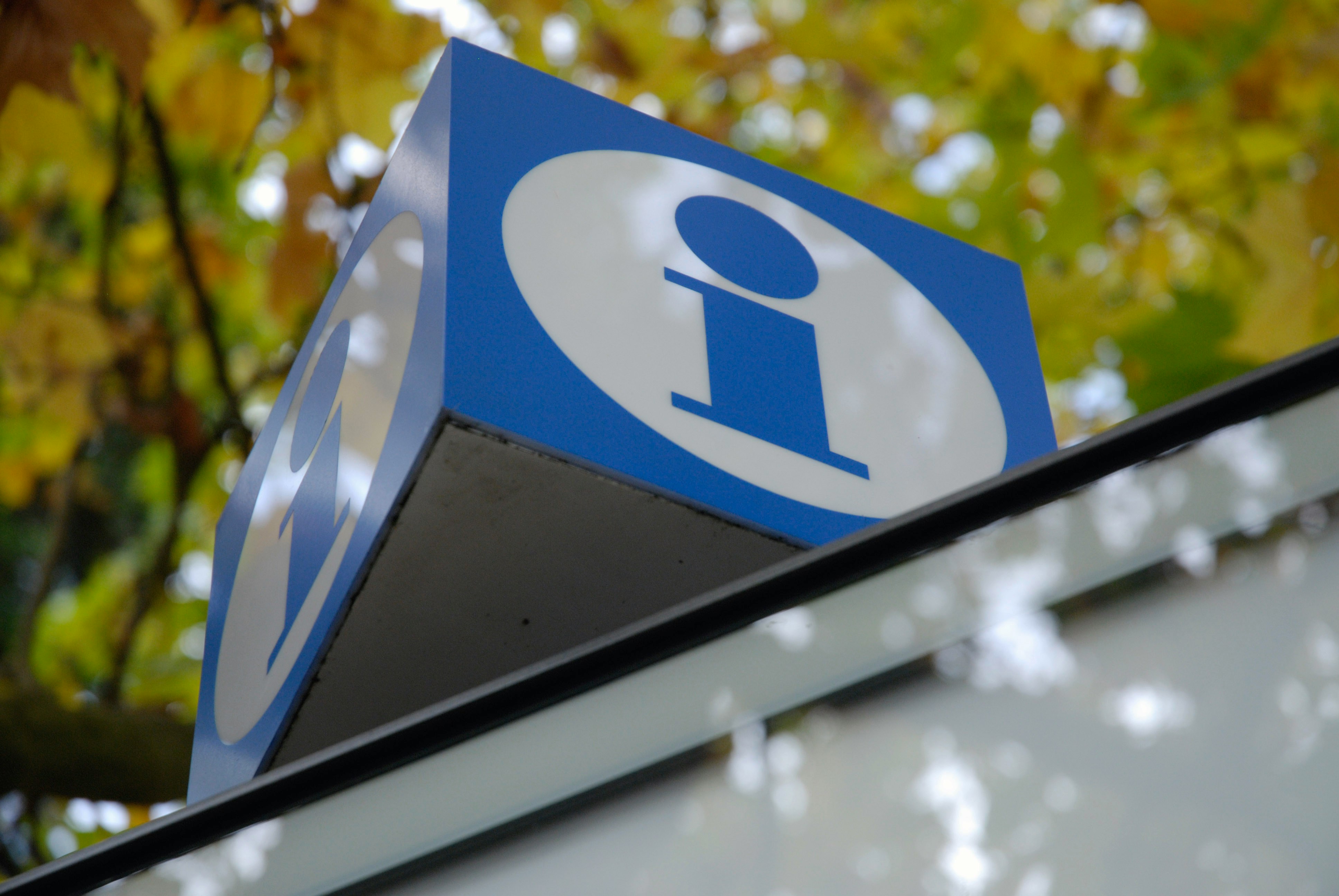

Situated at the crossroads of three great rivers – the Mekong, Tonle Sap, and Bassac – Phnom Penh is the heart of a country steeped in tradition, overflowing with rice paddies, jungles, and rural communities. Once a sleepy backwater, Phnom Penh, now, buzzes with commercial activity as the country develops after years of isolation. Old French colonial mansions stand alongside newly emerging designs, which make the city’s mixed architecture and communities fascinating to explore.
The City
Phnom Penh took its name from a legendary tale involving a woman called Penh, who is said to have discovered four Buddhas washed ashore by the great river.
Following French colonisation in 1869, which lasted until King Norodom Sihanouk declared independence in 1953, the city underwent significant urban development, marked by the construction of impressive villas and wide avenues that now define its city centre.
However, the vibrant atmosphere of the 1960s was abruptly disrupted on April 17, 1975, when the Khmer Rouge seized control of the country, causing Phnom Penh to empty almost overnight. After four years, Cambodians returned to rebuild their capital from a small riverside village into the bustling commercial hub it is today.
Despite its growth, Phnom Penh retains its unique charm as an unspoiled Asian gem, where cyclo drivers navigate through a sea of motorbikes, embodying the city's dynamic spirit.
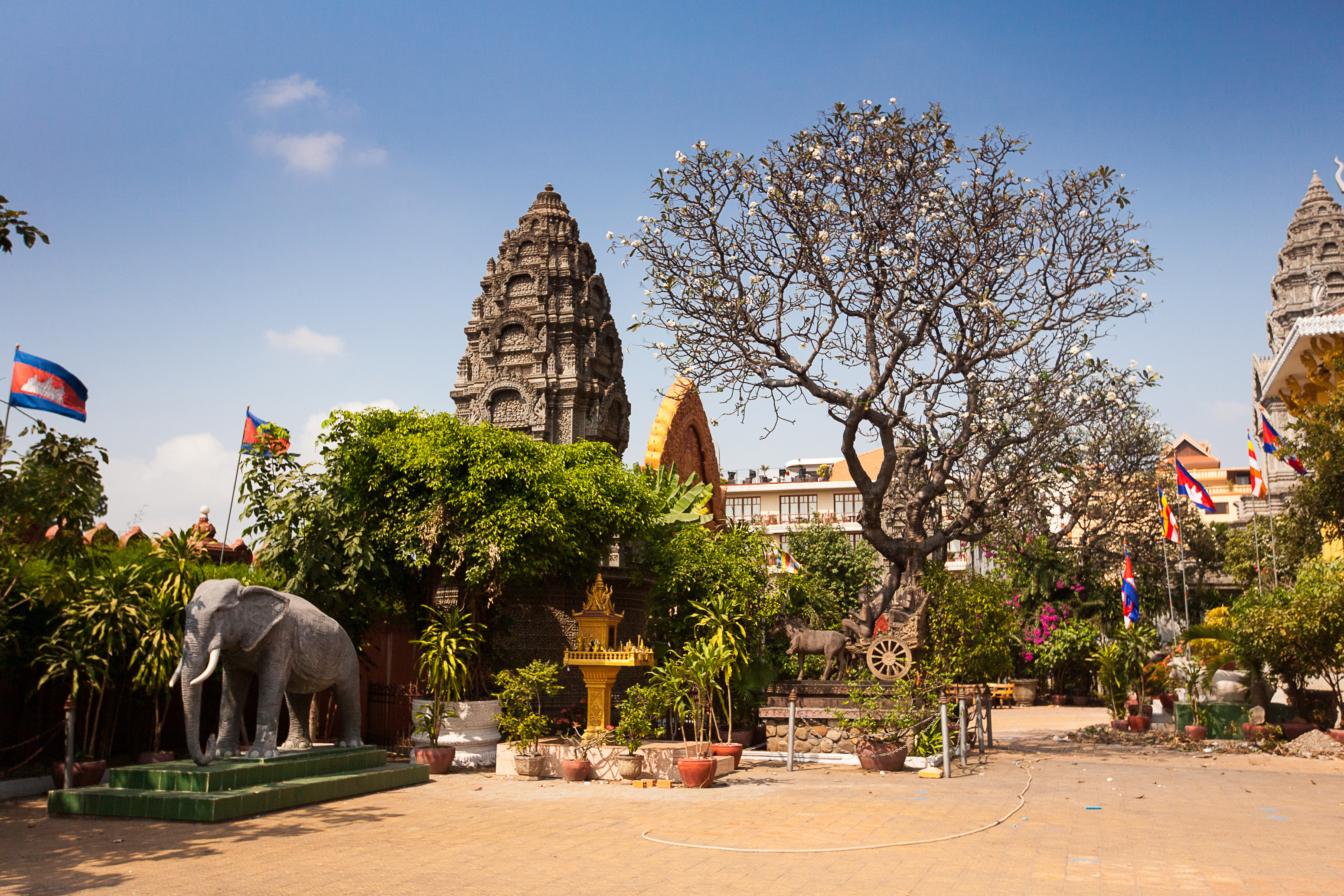 Tepikina Nastya / Shutterstock.com
Tepikina Nastya / Shutterstock.com
Do & See
Spend a day walking through the historical streets surrounding the Royal Palace, ride a tuk-tuk hopping from market to market, and end your day gazing at the shimmering lights reflecting off the Tonle Bassac. The city’s life never ceases as the old and the new live alongside each other.
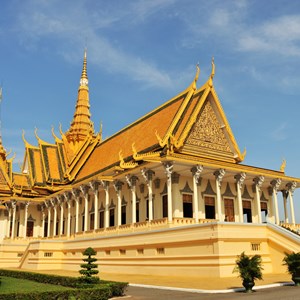 Xuanlu Wang/Shutterstock.com
Xuanlu Wang/Shutterstock.com
Royal Palace and Silver Pagoda
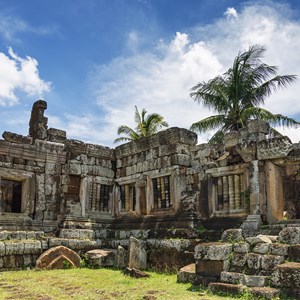 JM Travel Photography/Shutterstock.com
JM Travel Photography/Shutterstock.com
Phnom Chisor Temple
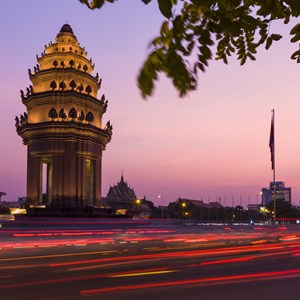 Peter Stuckings/Shutterstock.com
Peter Stuckings/Shutterstock.com
Independence Monument
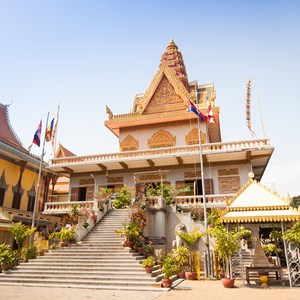 Tepikina Nastya/Shutterstock.com
Tepikina Nastya/Shutterstock.com
Wat Ounalom
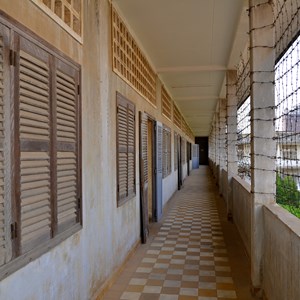 meunierd/Shutterstock.com
meunierd/Shutterstock.com
Tuol Sleng Museum
 sakepaint/Shutterstock.com
sakepaint/Shutterstock.com
Yoga Phnom Penh
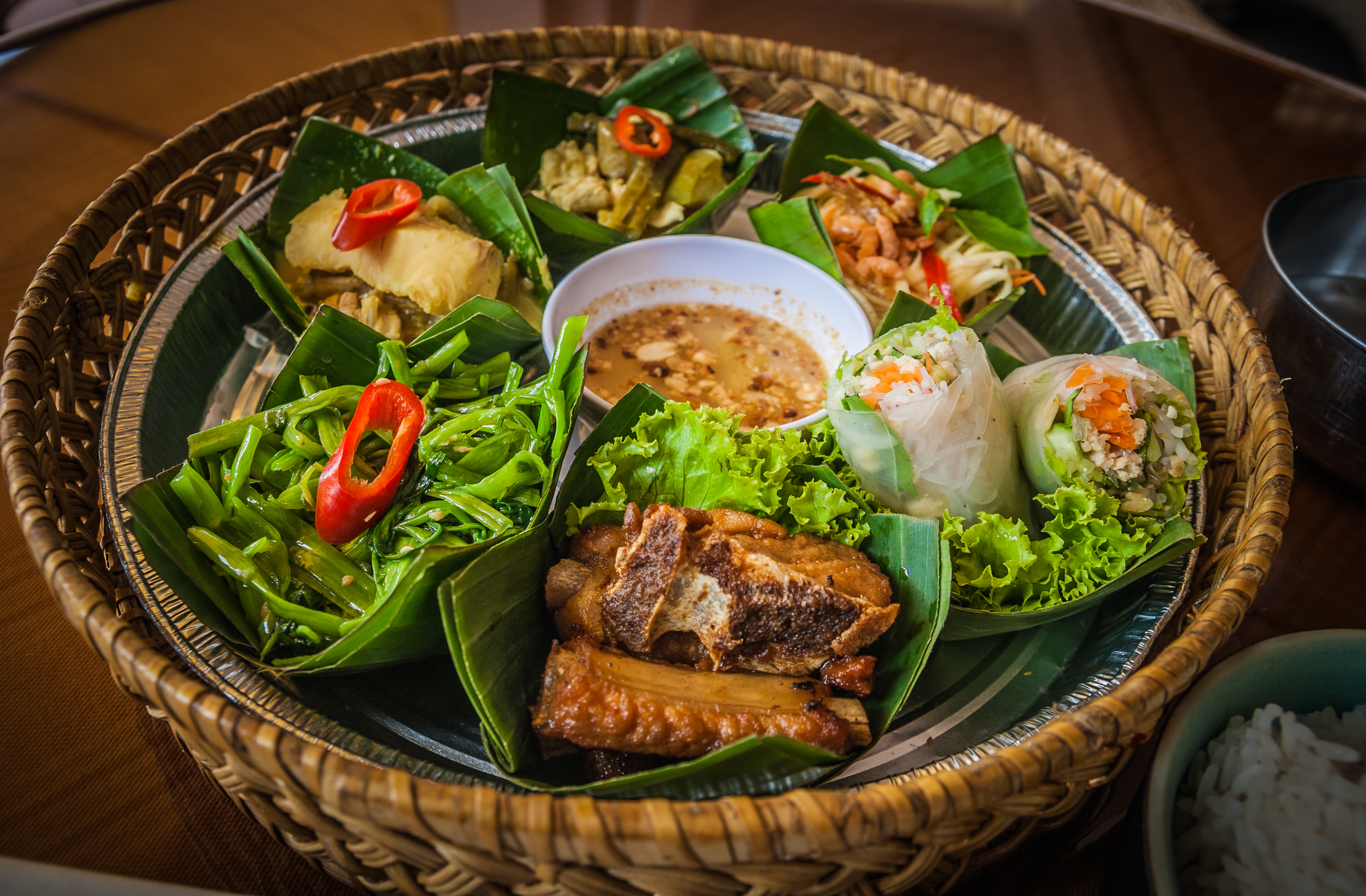 GuoZhongHua / Shutterstock.com
GuoZhongHua / Shutterstock.com
Dining
Composed by a mix of Thai and Vietnamese cuisine, Cambodian cuisine is varied, simple and delicious. A diet is usually based on fish and soups while the local food offers healthy and abundant Asian surprises. Khmer highlights are fish amok (fish cooked in coconut) and barbecued beef, which can be found on most street corners in the early evening around the Central Market. As the city is made up of many communities including Vietnamese, Chinese and Expatriates, there is a variety of delicacies and restaurants catering to a large expatriate community.
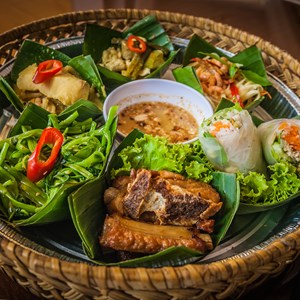 GuoZhongHua / Shutterstock.com
GuoZhongHua / Shutterstock.com
Khmer Surin
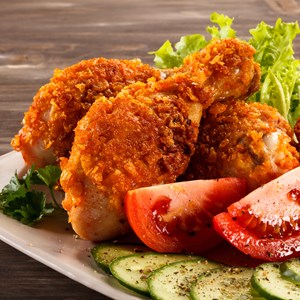 Jacek Chabraszewski / Shutterstock.com
Jacek Chabraszewski / Shutterstock.com
FCC (Foreign Correspondents Club)
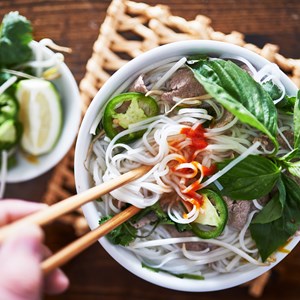 Joshua Resnick/Shutterstock.com
Joshua Resnick/Shutterstock.com
Pho de Paris Restaurant
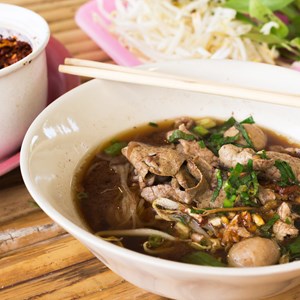 PJjaruwan/Shutterstock.com
PJjaruwan/Shutterstock.com
Boat Noodle
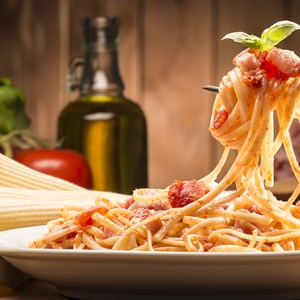 Mauro Pezzotta/Shutterstock.com
Mauro Pezzotta/Shutterstock.com
Do Forni
Cafés
Just like Siem Reap, Phnom Penh is a haven for fruit lovers. From mangoes of all shapes and sizes to delicious mangosteens. All markets have a fruit section, and sellers walk along most main streets selling fresh papaya, pineapple, and whichever fruit is in season. However, you will still find cafés serving a strong cup of coffee and Western-style pastries.
 View Apart / Shutterstock.com
View Apart / Shutterstock.com
Bars & Nightlife
Known for being a city without limits, Phnom Penh’s reputation as a nightspot rings true. With the local population out and about at night after years of unrest, bars and clubs have mushroomed in the last years.
 Minerva Studio/Shutterstock.com
Minerva Studio/Shutterstock.com
Heart of Darkness
 g-stockstudio/Shutterstock.com
g-stockstudio/Shutterstock.com
Score! Bar & Grill
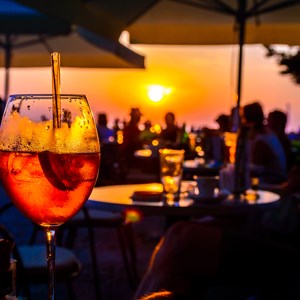 Thoom / Shutterstock.com
Thoom / Shutterstock.com
Le Moon Rooftop Bar
Shopping
Phnom Penh has an eclectic shopping scene. Some major international clothing chains have already hit the town, and with the several bustling markets and diverse communities, everything is here—from fragrant markets to modern malls.
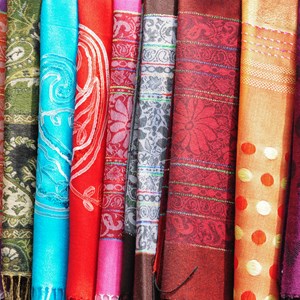 kowit sitthi/Shutterstock.com
kowit sitthi/Shutterstock.com
Street 240
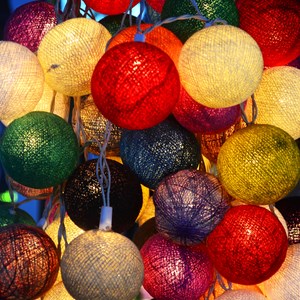 Etienne Hartjes / Shutterstock.com
Etienne Hartjes / Shutterstock.com
Tuol Tompoung Market
 Blend Images/Shutterstock.com
Blend Images/Shutterstock.com
Sorya Center Point
 VannPhotography/Shutterstock.com
VannPhotography/Shutterstock.com
Aeon Mall
Tourist Information
Best Time to Visit
Cambodia has rainy weather for half of the year and dry weather for the other half. The seasons can be subdivided into dry-cool (November-January), dry-hot (February-May), rainy-hot (May-September) and rainy-cool (October-November). You will find the best weather in the dry-cool season, with an overall average temperature of 26°C—this is the most popular time to go.
The rainy-cool season can be an alternative if you want to avoid the crowds of tourists—the green landscapes boast beautiful colours during this time. However, so much rain might be uncomfortable for some, and if you are planning day trips, be aware that water may flood the streets and make it impossible to reach smaller, remote places. The rainiest months are August and September.
Address:
Email:
Phone:
Website:
More Information:
Passport / Visa
Visas to Cambodia are available at airports and land borders, as well as online for citizens of most countries. In order to obtain one, make sure you can provide a passport valid for at least six months and a passport-sized photo for your visa. Visitors from an ASEAN member country do not need a visa to enter Cambodia, as long as they have a valid passport.
It's essential for travellers to check the latest visa requirements and entry regulations from the nearest Cambodian embassy or consulate or through official government channels before planning their trip to Cambodia.
Address:
Email:
Phone:
Website:
More Information:
Phnom Penh International Airport (PNH)
Phnom Penh International Airport (PNH) lies approximately 10 km from the city centre. The easiest way to get to and from the airport is by taxi. It takes around 20-40 minutes depending on traffic. You can also take a tuk-tuk. Whatever alternative you choose, you can buy a coupon inside the airport terminal to avoid the hustle outside.
Address: Phnom Penh International Airport
Email:
Phone: +855 23 862 800
Website: https://pnh.cambodia-airports.aero
More Information:
Health and Safety Advice
While vaccinations are not mandatory for entering Cambodia, they are highly recommended, along with bringing essential medications from home, as they may not be readily available in Phnom Penh.
It's crucial to have comprehensive travel insurance as healthcare in Cambodia can be costly, with upfront payments required, posing significant challenges in emergencies. Stay safe by avoiding tap water, opt for bottled water instead. Be sure to also pack (or buy there) an insect repellent to fend off mosquito-borne diseases.
Address:
Email:
Phone:
Website:
More Information:
Public Transport
Although many visitors still often use tuk tuks, cyclos or taxis to move around the city, the municipality of Phnom Penh has recently re-opened the 'Phnom Penh City Bus', an efficient public bus service that is a bit slower, but more comfortable than the alternatives. Moreover, they don't require you to negotiate prices with the driver, as other means of transport do. Bus tickets are cheap, and you can find transport apps on your phone.
Address:
Email:
Phone:
Website:
More Information:
Tuk Tuks, Cyclos & Motorbikes
Navigate the bustling streets of Phnom Penh with ease by opting for traditional modes of transportation like tuk-tuks or cyclos. Tuk-tuks, a motorised vehicle common in Cambodia, offer convenient and flexible travel options, though agreeing on a price beforehand is essential. Alternatively, cyclos, typically operated by elderly countryside dwellers, offer a slower but more scenic journey through the city at a slightly lower cost than moto-taxis. For added convenience, phone apps are available to hail tuk-tuks and taxis. While motorbike rides are popular for exploring, caution is advised due to the city's chaotic traffic and lax adherence to road regulations.
Address:
Email:
Phone:
Website:
More Information:
Taxi
There are two types of taxis in Phnom Penh, those with a meter and those without. You can find them outside major hotels or close to the tourist attractions. If you choose a taxi without a meter, always agree on a price before you start the journey.
Phnom Penh Taxi
+855 17 757 800
Phnom Penh Taxi Drivers
+855 92 994 227
Address:
Email:
Phone:
Website:
More Information:
Post
At the main post offices in the city, you can buy stamps and receive help for sending parcels. Always watch the carrier put the stamp on your postcard, letter, or parcel, otherwise, there might be a risk it will not reach its destination.
Address: Cambodia Post - Corner of Street 13 and Street 102, Sangkat, Phnom Penh
Email:
Phone: +855 023 428 080
Website: https://cambodiapost.com.kh/home
More Information:
Pharmacy
One of the biggest pharmacies in Phnom Penh is Pharmacie de la Gare, which is located next to the railway station at:
124, Preah Monivong Boulevard (93), Phnom Penh
+855 92 711 771
Opening hours: daily 8am–7pm
UCare Pharmacy is part of a recently opened pharmacy chain and offers one of the largest stock of medicine (from France) in town.
Address: UCare Pharmacy - 26-28 Sothearos Boulevard corner St. 178, Phnom Penh
Email: info@ucarepharma.com
Phone: +855 95 888 531
Website: www.ucarepharmacy.com
More Information:
Telephone
Country code: +855
Area Code: 23
Address:
Email:
Phone:
Website:
More Information:
Electricity
230 V, 50Hz
Address:
Email:
Phone:
Website:
More Information:


